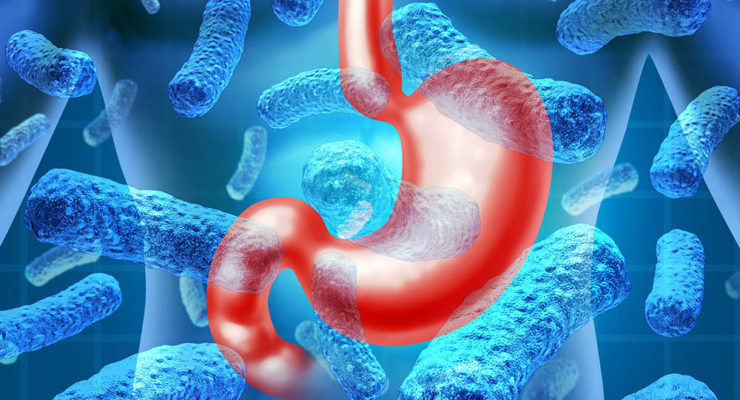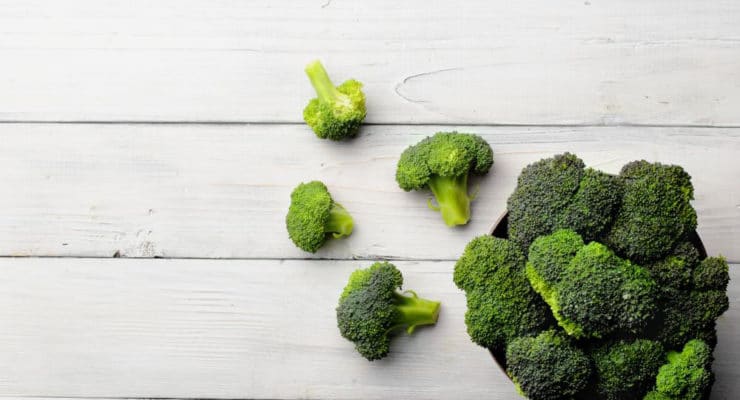(Virgilio Marin) Researchers uncovered a previously unknown link between genetic variation and gut bacteria which could help nutritionists personalize their recommendations. In a paper published in the journal Cell Host & Microbe, American and Egyptian researchers reported that having many copies of the gene alpha-amylase 1 (AMY1) is associated with increased populations of gut bacteria that play an important role in digestive and oral health.
gut bacteria
Gut Bacteria Influence Brain Development
(Neuroscience News) An overgrowth in the gastrointestinal tract of the bacteria Klebsiella in preterm babies was associated with an increased presence of certain immune cells and the development of neurological damage. The findings suggest a link between microbiota and brain development.
The Gut’s Role in Food Allergies: Scientists Identify Changes in Gut Microbiota That May Prevent or Even Reverse Food Allergies
(Franz Walker) The effects of food allergies can range from simply being annoying or inconvenient, preventing you from eating your favorite food, to life-threatening, like difficulty breathing. While medical means of combating food allergies do exist, a recent study has found a more natural, and potentially more effective, method of fighting food allergies – adjusting gut bacteria.
Doesn’t Stomach Acid Eat Bacteria? Researchers Successfully Identify the Hiding Place of H. Pylori, a Bacteria Linked to Stomach Ulcers, Cancer
(Evangelyn Rodriguez) The bacterium known as Helicobacter pylori is notorious for its ability to colonize humans and cause stomach ulcers. While an H. pylori infection rarely causes any symptoms, there are some cases where the bacterium causes open sores to form in the stomach or triggers severe inflammation — an event that could eventually lead to gastric cancer.
Bacteria in the Gut May Alter Aging Process
(Justin Deschamps) Aging is related to how the body repairs itself. This self-repair ability is tied to gut bacteria due to the fact these microorganisms are instrumental in the production of nutrients along with the mechanism by which we absorb vitamins and release toxins in the digestive tract. The following study looked at the effect of transferring healthy gut bacteria to an unhealthy subject, observing that changes took place that reduced the effects of aging.
Even the Fetus Has Gut Bacteria
(Neuroscience News) Both human and mouse fetuses have their own microbiome, which is transmitted from the mother. Findings provide new avenues for interventions during pregnancy to stimulate the fetal microbiome when the mother shows risk of premature birth.
Babies Born by C-Section Have Different Gut Bacteria
(Neuroscience) Babies born by cesarean section have a reduced level of “good” gut bacteria and an increased number of pathogens linked to hospital environments, according to research co-led by UCL that is the most comprehensive study of the baby microbiome to date.
Feeling Bloated? Here Are 8 Herbal Teas to Make You Feel Better
(Zoey Sky) Nobody likes feeling bloated. If your stomach is feeling uncomfortably swollen today, here are some soothing beverages you can make to naturally relieve the bloated feeling.
Study: One Apple Carries Roughly 100 Million Bacteria — Which Is A Good Thing
(John Anderer) How does the old saying go? “100 million bacteria a day will keep the doctor away?” Sounds about right. A new study reveals that a typical 240g apple contains around 100 million bacteria, mostly in the seeds and skin. While that may sound a bit off-putting at first, researchers say that when it comes to gut health, the more bacteria the better.
Gut Microbes Protect Against Neurologic Damage from Viral Infections
(Science Daily) Gut microbes produce compounds that prime immune cells to destroy harmful viruses in the brain and nervous system, according to a mouse study.
What’s in Your Gut? Scientists Have Mapped the Gut Microbiome Landscape
(Jhoanna Robinson) A recent study, which was published in the journal The Proceedings of the National Academy of Sciences (PNAS), provided a glimpse of how microbial communities in the gut – known collectively as the gut microbiome – are spatially placed, revealing an unusual degree of mixing among different bacterial members.
Psychobiotics: Bacteria For Your Brain?
(Kelly Brogan, M.D.) Every functional medicine psychiatrist has case stories of the “probiotic cure” – of a patient with debilitating symptoms, often obsessive compulsive range, whose symptoms remitted completely with dietary change and probiotic supplementation. Is this voodoo or is it based on a growing understanding of the role of the microbiome in mental health and behavior?
Six Decades of Research Concludes That Gluten Grain Consumption Increases the Risk of Both Neurological and Psychiatric Problems
(Isabelle Z. )Gluten barely registered on most people’s radars until recently, but it’s something researchers have been investigating for more than six decades. These days, we hear a lot about gluten intolerance, with some people having legitimate autoimmune disorders like Celiac disease, completely unable to consume it while others are simply following a celebrity fad and avoiding it in hopes of slimming down. Motivations aside, it’s pretty easy to find food in the grocery store these days boasting of its gluten-free status.
Eating Cruciferous Greens Help Your Immune System Fight off Intestinal Pathogens
(Edsel Cook) Vegetables are known to contain natural compounds that support the protective functions of the immune system. An article in The Francis Crick Institute news page reported that cruciferous vegetables are particularly beneficial when it comes to shielding the intestine from disease-causing microorganisms.
The Wrong Gut Bacteria Found to Cause Brain Blood Vessel Lesions That Lead to Strokes and Seizures
(Russel Davis) A recent study published in Nature revealed that intestinal bacteria may alter the brain’s blood vessel structure, which in turn may play a role in the development of malformations that result in stroke or epilepsy. As part of the research, a team of health experts at the University of Pennsylvania examined the probable causes of cerebral cavernous malformations (CCM) in genetically-engineered mice. CCMs were characterized by clusters of dilated, thin-walled blood vessels that trigger seizures or stroke at the event of blood leakage to the surrounding brain tissue.














